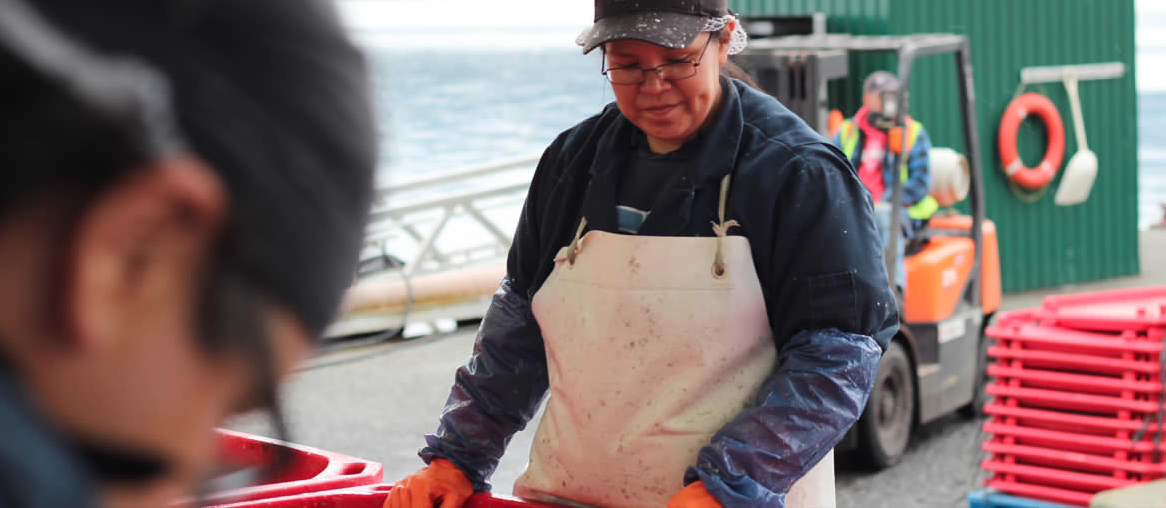Programs Reviewed

This program is a framework for Indigenous fishing for food, social, and ceremonial purposes. It has several technical components to help Indigenous communities build capacity to participate in the management of fisheries. This includes the capacity to undertake scientific stock assessments and habitat management activities in the field, to monitor the catch and fishing activities, and to enforce the rules set for food, social, and ceremonial fishing.
Approximately 125 agreements have been signed each year since the Aboriginal Fisheries Strategy began in 1992. Two-thirds are reached with Indigenous groups in the Pacific Region of Fisheries and Oceans Canada, with the balance in Atlantic Canada and Quebec. The 85 agreements in Pacific Region provide funding to 162 First Nations.
Click here for full program details.
Aboriginal Fishery Guardian Program
This program is a component of the Aboriginal Fisheries Strategy. It was set up to help Indigenous communities develop their capacity to conduct scientific stock assessments and habitat management activities, to monitor the catch and fishing activities, to collect data related to fisheries and habitat, and to enforce the rules set for food, social, and ceremonial fishing.

Aboriginal Aquatic Resource and Oceans Management Program
This program was created in 2004 to help Indigenous communities form an aquatic resource and oceans management group along an ecosystem or watershed that is supported by skilled personnel, such as fisheries managers, biologists, and technologists. These professionals undertake scientific research activities to support ecosystem-based management. They also participate in advisory and decision-making processes related to aquatic resource and oceans management.
The program encourages co-operation at a broader, inter-community level. There are presently 35 aquatic resource and oceans management groups under the program, representing 258 Indigenous communities. Some communities belong to more than one group.
Click here for full program details.
Atlantic Integrated Commercial Fisheries Initiative
This program provides Mi’kmaq and Maliseet First Nations in New Brunswick, Prince Edward Island, Nova Scotia, and the Gaspé region of Quebec with the means to develop and operate successful commercial fisheries enterprises and to have a more effective voice in fisheries co‑management.
Thirty-four of the 35 eligible First Nations participate in the program. Their commercial fishing enterprises are successful, generating $110 million in gross revenues each year and supporting 1,675 local jobs.
Click here for full program details.
Pacific Integrated Commercial Fisheries Initiative
This program supports the involvement of First Nations in British Columbia in commercial fisheries by helping them develop sustainable fisheries enterprises and increase their participation in fisheries management decision-making processes.
Twenty-five commercial fishing enterprises currently participate in the program, representing 97 of the 202 First Nations in British Columbia. Their commercial fishing enterprises are successful, generating $40.2 million in gross revenues each year and supporting 1,100 local jobs.
Click here for full program details.
Northern Integrated Commercial Fisheries Initiative
This program is helping Indigenous groups and communities run a commercial fishing enterprise or aquaculture operation, with particular focus on business development planning and targeted training. The program is open to communities that are not eligible for the Atlantic or Pacific programs in all areas where DFO manages the fishery and aquaculture. While this program benefits from the success of the Atlantic and Pacific programs, it is designed to meet the unique needs and issues of its participants.

